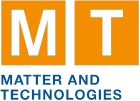Speaker
Kseniia Bastrakova
(HZDR)
Description
Large-scale particle-in-cell plasma simulations on modern supercomputers often involve handling immense amounts of macroparticles, which poses a challenge in terms of computational and memory resources.
Furthermore, the amount of macroparticles could grow throughout a simulation due to accounting for such processes as ionization or creation of electron-positron pairs. In such situations, a common approach to alleviate the growth in computational demands is occasionally reducing the amount of simulated macroparticles, while preserving the main physical invariants and representing the same distribution. Particle reduction is also helpful for complex simulation workflows involving chaining several software tools, which might have substantially different requirements. There are several established approaches to performing particle reduction in the context of particle-in-cell simulation, based on subsampling or merging nearby macroparticles.
We present a new open scriptable data-centric workflow for performing particle reduction based on the open meta-data standard openPMD. It implements a few established algorithms and provides a numerical evaluation of distortions inflicted on the distribution functions due to particle reduction.
We present a computational evaluation of the implemented algorithms on input data of different scales.
Authors
Dr
Alexander Debus
(a.debus@hzdr.de)
Mr
Axel Huebl
(HZDR)
Mrs
Heide Meissner
(HZDR)
Kseniia Bastrakova
(HZDR)
Dr
Michael Bussmann
(Helmholtz-Zentrum Dresden - Rossendorf)
Dr
Sergei Bastrakov
(HZDR)

